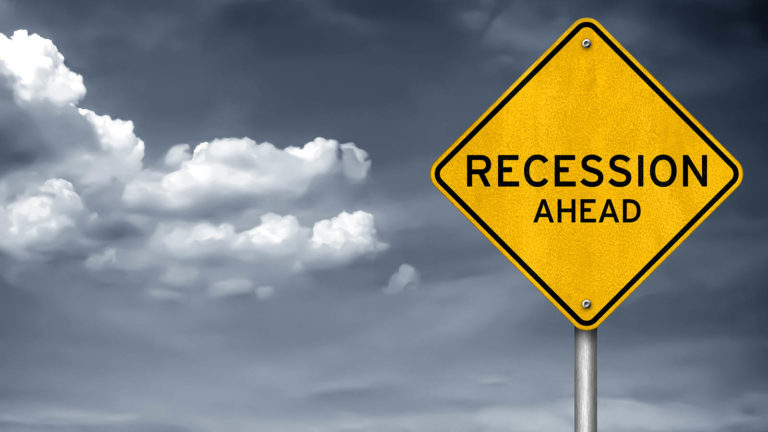Is the U.S. in a recession? The answer is “no,” simply because the majority of the American economy is based on U.S. consumer spending, and American consumers’ spending is still strong.
Moreover, unless some unlikely events materialize, a recession probably won’t occur for at least the next year.
Consumer Spending Is Still Growing
According to thebalance.com, “Consumer spending contributes almost 70% of the total United States … [GDP].” Likewise, according to The Wall Street Journal, in April (the last month for which we have statistics), “When taking inflation into account, personal-consumption expenditures rose 0.7% … with durable goods spending up 2.3%, nondurable goods spending up 0.2%, and services spending up 0.5%.”
In other words, even if we do not factor in the higher spending that was caused by inflation, consumer outlays grew significantly in April, compared with March.
The Strong Job Market and Wages Are the Keys
Bearish economists, pundits and analysts say that a recession is imminent due to rising interest rates, sinking consumer confidence readings and declining savings rates.
But for the most part, from a common sense perspective, it’s clear that three factors primarily determine the spending levels of most American families: their jobs, their wages and the extent of their confidence in the outlook of the first two items.
I concede that many Americans are dipping into their savings because prices and interest rates are rising. But the data so far shows that most consumers’ salary increases are at least coming close to equaling the rate of inflation. For example, The Wall Street Journal reports that “[a]djusted for inflation, disposable income was flat during [April].”
As long as they are confident that their jobs are safe and that their incomes will continue coming close to meeting inflation, most American families probably won’t curtail their overall spending a great deal, even if they are not too pleased with the situation that they’re facing.
An Average Middle Class American Family
To illustrate my point, let’s take a look at a fictional American middle-class family whose situation, I believe, is fairly typical for U.S. households now.
John and Judy live in suburban Wisconsin. Judy is a 45-year-old engineer and has an annual salary of $75,000, while 50-year-old John is a customer service manager for a medium-sized company and earns $65,000 per year.
Judy received a 4% raise at the end of last year, while John’s salary increased by 5%. But due to their long commutes and their adjustable-rate mortgage, their expenses have gone up by roughly 7%.
Moreover, they decided when they got their raises to take an extravagant vacation this summer because they had not been on one for three years. Due to inflation, when they finally got around to booking their hotel and flight in March, they had to pay much more than they thought they would, and they had to dip into their savings account to pay for their vacations. Meanwhile, they have to use their liquid savings, which now totals approximately $100,000, to pay about 2% of their expenses each month.
Overall, of course, John and Judy are not nearly as happy about their economic situation as they were last year. But their companies are both doing well and have assured them that they can expect significant raises again next year. Moreover, their 23-year-old son, Michael, just got a $50,000 per-year job at a local marketing firm, so they no longer have to worry about providing him with funds going forward.
In their current situation, will John and Judy cancel their upcoming vacation? Will they stop going out to eat once a week at casual dining restaurants? If one of their old cars break down, will they not buy a new one?
I’d say the answers to all those questions are probably “no” because they have secure jobs and expect their wages to continue to rise meaningfully going forward. Moreover, their son was able to get a fairly high-paying job, so they won’t have to support him.
Could the Situation Change?
A year from now, if you ask me “Is the U.S. in a recession?” I may have to answer “Yes,” although I think that scenario is unlikely.
But if, in June 2023, gasoline prices have jumped to an average of $7 per gallon, inflation has risen to 10%, and the Federal Reserve’s key interest rate has climbed to 5%, then families like those of John and Judy will have to tremendously reduce their spending. As a result, companies will make less money. and they will may have to lay many workers off, reducing consumer spending still further. Under those conditions, a recession will become inevitable.
But data indicates that inflation is peaking, while the Fed has suggested that it could very well slow the rate of interest rate hikes starting in September or even pause hiking rates then. Finally, electric vehicle sales are soaring, and Saudi Arabia has agreed to pump more oil, making huge, additional increases in gasoline prices highly unlikely.
So, because of the strength of the labor market and consumer spending, the U.S. is not in a recession and probably will not undergo one in 2023 either.

